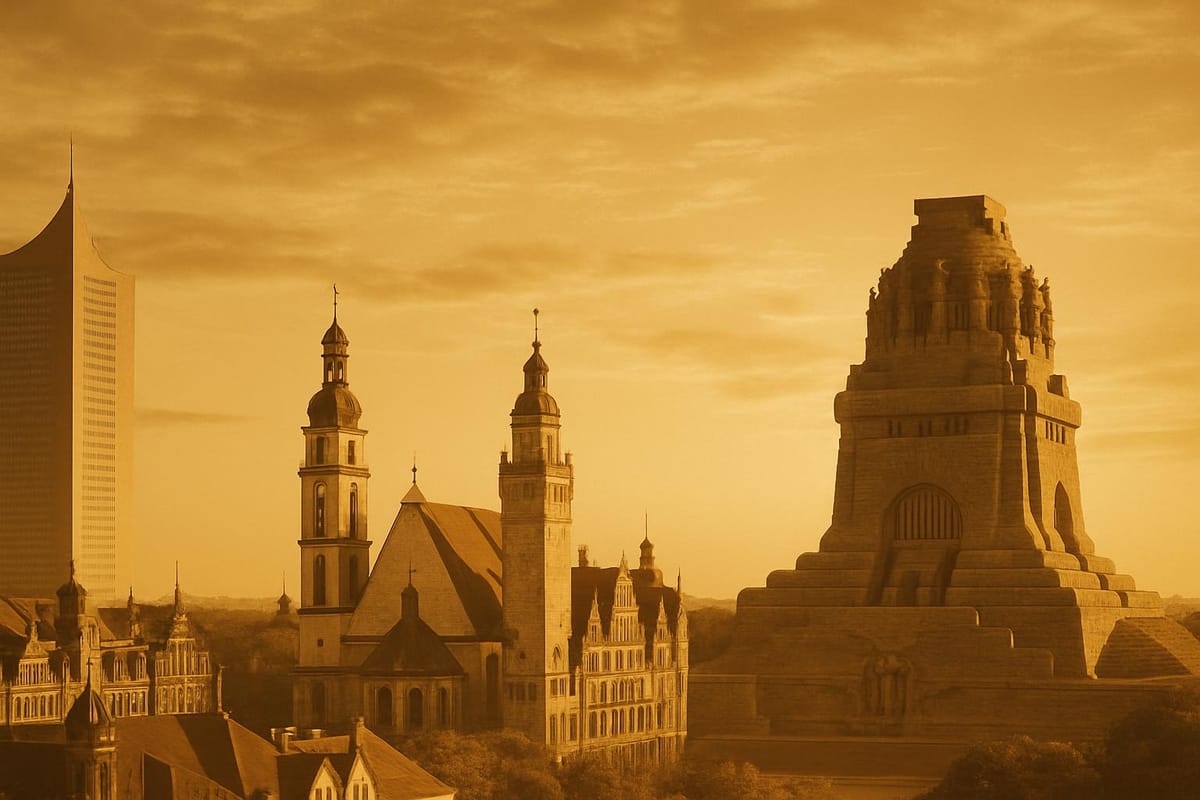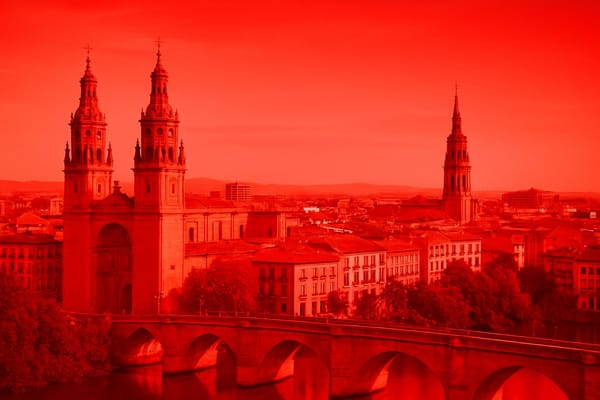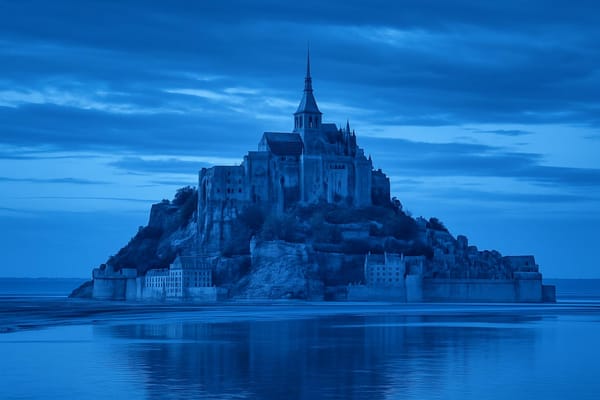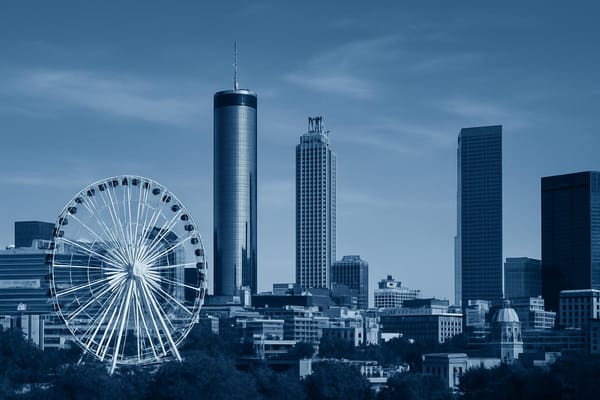Leipzig
Top things to do: historic music, vibrant arts, lively markets, cozy cafes and riverside parks

Important things to know about Leipzig
Leipzig, Germany, is a dynamic urban center where history and modern life blend into a distinctive city identity, known for a resilient industrial past that has transformed into a thriving hub for innovation, culture and creative industries. As a city with growing economy and a rising population, Leipzig attracts students, entrepreneurs and professionals who appreciate affordable living, good public transport connections and a strong sense of community. The presence of respected universities and research institutions fuels a steady stream of talent, while a diverse small business and startup scene emphasizes technology, media and sustainable production, reflecting broader shifts in Germany’s economic landscape. Neighborhoods range from renovated historic quarters to new developments, offering a mix of housing options and local commerce that supports everyday life; green corridors and parks are woven into the urban fabric, contributing to quality of life and recreational opportunities for residents. Cultural life is rich without relying on tourist sites alone: a lively arts ecosystem, music traditions, independent galleries, and community-driven events create ongoing engagement and creative exchange. Leipzig’s position in eastern Germany shapes its unique social and political character, with civic activism and cultural renewal playing a visible role in public discourse. Efficient rail and road links connect the city to national and international networks, supporting both commuters and businesses. For those considering relocation, investment or long-term stays, Leipzig offers a compelling combination of affordability, entrepreneurial energy, academic resources and a vibrant everyday culture that reflects the evolving face of contemporary German urban life.
Sightseeing hot-spots in Leipzig
Leipzig is a dynamic city where history and contemporary life meet, making it a top spot for sightseeing in Germany. Strolling through the Old Town, visitors encounter landmarks like St. Thomas Church, famous for its association with Bach, and the Nikolaikirche, a symbol of peaceful revolution. The compact center means many Leipzig attractions are within walking distance, from the Renaissance façades of the market square to the hidden courtyards around Auerbachs Keller, giving travelers a rich palette of architectural and cultural experiences.
Culture seekers will find world-class music and museums that define Leipzig sightseeing highlights. The Gewandhaus orchestra and the Bach Museum celebrate the city’s musical legacy, while contemporary art spaces such as the Spinnerei offer cutting-edge exhibitions and studio visits. Museums for natural history, fine arts, and local history provide diverse indoor options, perfect for rainy days or a deeper dive into the city’s past. Dining and café culture blend with concert schedules and gallery openings, so planning a day of things to do in Leipzig often mixes performances with museum time.
Outside the center, Leipzig’s green spaces and monumental sites add variety to any itinerary when visiting Leipzig, Germany. The imposing Monument to the Battle of the Nations overlooks parkland and walking trails, while the celebrated Leipzig Zoo draws families and wildlife lovers alike. Evenings come alive along lively streets with bars, craft breweries, and markets that showcase local produce and artisans. Whether your focus is history, music, art, or simply soaking up urban atmosphere, Leipzig offers memorable sightseeing experiences that reward repeat visits.
Hotels to enjoy in Leipzig
Leipzig is a vibrant city where finding the right hotels in Leipzig can transform your visit into an unforgettable experience. Whether you're searching for Leipzig hotels near the historic city center, a luxury stay close to the opera and museums, or an affordable option by Leipzig Hauptbahnhof, the city offers a diverse range of accommodation to match every travel style. Business travelers will appreciate convenient locations near Messe Leipzig and modern conference facilities, while culture seekers can enjoy boutique properties tucked in leafy neighborhoods near the Gewandhaus and St. Thomas Church. Many visitors look for the best hotels in Leipzig that combine modern amenities, free Wi‑Fi, on-site dining, fitness centers, and friendly service-features that are commonly highlighted in search queries for top-rated Leipzig lodging.
Choosing where to stay in Leipzig becomes easier when you consider proximity to attractions, transport links, and whether a hotel is family-friendly or ideal for a romantic weekend. From designer boutique hotels and historic townhouses to reliable chain brands and budget hostels, the range of accommodation in Leipzig caters to solo travelers, couples, and families alike. To get the most value, compare reviews for cleanliness, breakfast options, and cancellation policies, and look for deals in the city center or quieter residential districts for a more local vibe. With well-connected tram and S-Bahn networks, quality Leipzig hotels near attractions make it simple to explore artisan markets, nightlife, and green spaces while enjoying comfortable, well-located stays that suit every itinerary.
Restaurants to try in Leipzig
Leipzig’s restaurants offer a rich blend of tradition and innovation, where Saxon specialties sit comfortably beside inventive international plates. In the heart of the city and in vibrant neighborhoods like Plagwitz and Südvorstadt you can find everything from cozy beer halls serving hearty regional dishes to sleek fine dining venues showcasing seasonal, locally sourced produce. The city’s culinary scene has grown into a magnet for food lovers, with chef-driven menus that reinterpret classics and casual spots that excel at street food and quick bites. Whether searching for the best restaurants in Leipzig or a hidden local bistro, visitors will discover an approachable gastronomic culture that highlights artisanal breads, smoked fish, sauerkraut variations, and a wide array of vegetarian and vegan options.
Dining in Leipzig is as much about atmosphere as it is about flavor, with many Leipzig restaurants occupying historic buildings, leafy courtyards, and converted industrial spaces that reflect the city’s creative energy. Markets and small producers supply fresh ingredients to passionate chefs, ensuring that seasonal menus feel rooted in place. For travelers aiming to experience authentic Leipzig cuisine, evenings often begin with a glass of regional wine or craft beer followed by shared plates and thoughtful desserts. The city’s evolving food calendar, from pop-up dining to long-established family-run tables, means there’s always a new taste to explore, making Leipzig a compelling destination for anyone researching or planning where to eat in this dynamic German city.
Best shopping stops in Leipzig
Leipzig offers a vibrant blend of modern malls and charming historic arcades that make shopping in Leipzig a delight for every taste. From the bustling Hauptbahnhof, one of Europe’s largest train station shopping centers, to the elegant Mädler Passage with its period architecture and boutique shops, the city balances convenience with style. Shoppers can explore high-street brands and department stores like Karstadt, while independent designer boutiques and concept stores in the city center and neighborhoods such as Plagwitz showcase contemporary Leipzig creativity. Seasonal markets and craft fairs add an authentic local flavor, where visitors can discover handmade goods, regional foods, and antiques that reflect the city’s rich cultural heritage.
Beyond storefronts, Leipzig shopping is an experience shaped by lively streets such as Petersstraße and the cultural backdrop of galleries, cafés, and historical landmarks. The pedestrian zones invite window-shopping and relaxed exploration, and the city’s accessible public transport makes hopping between districts easy for tourists and locals alike. Whether you’re hunting for luxury labels, unique vintage finds, or sustainable local brands, the diverse retail scene ensures memorable purchases and great photo opportunities. For anyone planning a shopping trip, Leipzig combines convenience, variety, and authentic Saxon charm, making it a top destination for both serious shoppers and casual browsers.
Nightlife highlights in Leipzig
Leipzig nightlife pulses with a unique blend of historic charm and cutting-edge creativity, making it one of Germany’s most exciting night-time destinations. From the lively bars along Karl-Liebknecht-Straße (the "Karli") to tucked-away cocktail lounges and cozy beer gardens, the city caters to diverse tastes. The scene is known for its live music-jazz, indie, and experimental acts appear nightly-alongside a thriving electronic and techno culture that keeps dance floors moving until dawn. Visitors and locals alike praise Leipzig nightlife for its friendly, unpretentious atmosphere and the way art, music, and social life intersect in renovated industrial spaces and intimate cellars.
When exploring Leipzig’s nightlife highlights, expect to find legendary venues that reflect the city’s cultural mix: alternative clubs with DIY spirit, student-run centers hosting bands and DJ sets, and refined spots for cocktails and conversation. Well-known locations and neighborhood hubs are complemented by pop-up events, late-night food options, and seasonal outdoor gatherings that showcase Leipzig’s dynamic social calendar. Whether you’re after energetic club nights, relaxed live concerts, or creative bar-hopping, Leipzig offers memorable nighttime experiences that keep visitors coming back to discover new facets of its vibrant nightlife.
Getting around in Leipzig
Leipzig offers a well-connected airport and rail situation that makes travel to and from the city straightforward: Leipzig/Halle Airport (LEJ), located about 18 km northwest of the city center, handles a mix of scheduled European flights, low-cost carriers and a major cargo operation centered on the DHL hub, while passengers can reach the city quickly by the frequent S-Bahn and regional train services or by shuttle bus and taxi; in the city center the imposing Leipzig Hauptbahnhof serves as a central rail hub with numerous ICE long-distance connections to Berlin, Munich, Frankfurt and beyond, plus Intercity, regional and the efficient S-Bahn Mitteldeutschland network that links suburbs and nearby towns, and integrates with the extensive tram and bus network run by LVB under the MDV tariff system, making transfers seamless and tickets interoperable; travelers benefit from modern facilities, ample parking and bike options at major stations, predictable journey times and regular services that support tourism and business travel alike, so whether you search for quick flights, convenient rail connections, or reliable public transport in Leipzig, the combined airport and train infrastructure delivers strong accessibility and flexibility for domestic and international trips.
Culture must-see's in Leipzig
Leipzig’s culture highlights are anchored in a rich musical heritage that continues to define this vibrant city in Germany. From the solemn resonance of the choir at St. Thomas Church-where Bach once worked-to the world-class performances of the Gewandhaus Orchestra, the Leipzig music scene blends historical depth with modern interpretation. Classical concerts sit alongside cutting-edge experimental shows, and the city’s opera house stages productions that attract both local audiences and international visitors. These music-centered experiences are complemented by cozy cafés, lively clubs, and a calendar of festivals that together make Leipzig a compelling destination for anyone exploring culture in Leipzig.
Beyond music, Leipzig’s art and literary life offers equally striking culture highlights, with major institutions and grassroots spaces coexisting across the city. The Museum der bildenden Künste presents masterpieces in a historic-modern setting while the former cotton mills of Spinnerei house contemporary galleries and studios that showcase emerging talent. The annual Leipzig Book Fair and independent bookshops celebrate the city’s long literary tradition, and neighborhood scenes in Plagwitz and the Südvorstadt district pulse with street art, galleries, and performance venues. Whether you’re drawn to museums, avant-garde exhibitions, or lively public events, the cultural fabric of Leipzig, Germany rewards discovery at every turn, making it a top pick for cultural travelers and creative communities alike.
History of Leipzig
Leipzig's long and layered past began as a Slavic settlement and grew into a pivotal trade and cultural center in what is now Leipzig, Germany. First recorded in the early medieval period, the city’s strategic location at the crossroads of important north–south and east–west routes helped the Leipzig Trade Fair flourish from the Middle Ages into a leading European marketplace. The foundation of the University of Leipzig in 1409 fostered intellectual life, while the rise of printing and publishing established Leipzig as a European hub for books and music. The city’s musical heritage is inseparable from the Thomaskirche and figures such as Johann Sebastian Bach, who served as Thomaskantor and cemented Leipzig’s reputation for sacred and secular music; the Gewandhaus Orchestra and the Leipzig Opera continued that tradition through centuries. Leipzig also played a decisive role in military and political history: the Battle of the Nations (Völkerschlacht) in 1813 was a turning point against Napoleon, commemorated by the imposing Völkerschlachtdenkmal, and the city’s industrialization in the 19th century transformed it into a major manufacturing and transportation center, connecting the heritage of the past with the economic growth of the modern era.
The 20th century brought dramatic change, with wartime destruction followed by reconstruction and a complex identity under the GDR that shaped urban life, architecture, and labor. Despite political repression and the presence of the Stasi, Leipzig retained a vibrant civil society and intellectual scene; cultural institutions and fairs persisted and adapted. In 1989 the city became the cradle of the Peaceful Revolution, where regular demonstrations at the Nikolaikirche and other gatherings galvanized citizens and contributed directly to German reunification. Since reunification, Leipzig has undergone significant regeneration: historic landmarks have been restored, the creative and tech sectors have expanded, and the city markets itself as a dynamic center for culture, education, and innovation. Today’s narratives about the history of Leipzig, Germany emphasize resilience and reinvention-linking medieval markets and Baroque music to industrial prowess, Cold War struggles, and a 21st-century revival driven by creative industries, cultural tourism, and a continued passion for festivals like the Leipzig Book Fair.



